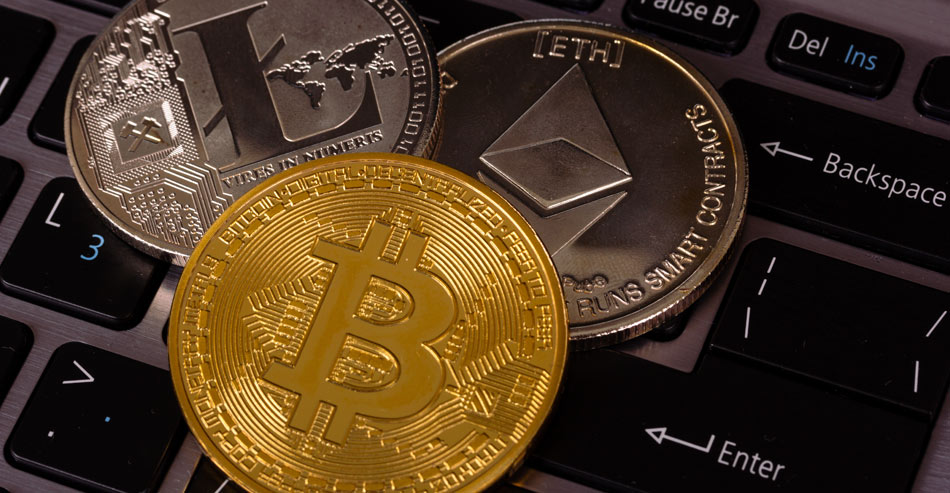Often dubbed ‘The New Gold’ cryptocurrencies have split investor opinion across the alternative investments space. Is the young pretender better than the old faithful?
 Bullion.Directory 16 August, 2021
Bullion.Directory 16 August, 2021
By Alison Macdonald
Commercial Editor at Bullion.Directory
Gold is one of the most popular—if not the most popular alternative assets in the investment world. In fact, for people looking for wealth protection, gold has been the leading choice since the dawn of civilization.
It makes sense because besides having a well-established market and being prone to steady growth, the precious metal is also valuable in both the world of electronics and jewelry, among other fields.
There’s one new investment asset, though, that’s threatening gold’s dominance. It’s called cryptocurrency. And despite being less than 20 years old, Bitcoin, Ethereum, Binance Coin, and other popular cryptocurrencies have been drawing attention from people interested in investing.
Younger, more digitally inclined investors actually see them as a store of value, even to the point of labeling crypto as digital gold!

So which is the better investment?
Considering the significant differences between gold and crypto enables one to make informed decisions when choosing between the two assets. That’s why in this post, you’ll learn a more in-depth look at the key differences between gold and cryptocurrency to help you decide which better option for you to invest in.
Top differences between gold and cryptocurrency
While you’ll never go wrong when deciding to invest in either option, there are still some things you need to learn about each. Below are the key differences between gold and crypto that every investor must consider before investing:
Availability
Seasoned investors always consider availability before adding something into their investment portfolio. They believe that the best investment assets are those that they can buy with little to no effort.
So how do gold and crypto perform in terms of ease of purchase?
![]() Gold: As for gold, investors can buy in many places. For instance, if you want to have the ability to purchase gold in different quantities, you can visit gold and jewelry shops. Online transactions are even possible through gold retail websites that sell gold bars and bullion.
Gold: As for gold, investors can buy in many places. For instance, if you want to have the ability to purchase gold in different quantities, you can visit gold and jewelry shops. Online transactions are even possible through gold retail websites that sell gold bars and bullion.
However, if holding physical gold sounds like too much for you, then turn your attention to gold exchange-traded funds (ETF), mutual funds, and individual retirement accounts. Many companies also make these alternative investments to bullion and other physical gold easily accessible.
 Cryptocurrency: How about crypto? Since it’s purely a digital asset—not to mention based on a network that’s distributed across many computers—cryptocurrency investing is expectedly a bit more complicated than other forms of investment.
Cryptocurrency: How about crypto? Since it’s purely a digital asset—not to mention based on a network that’s distributed across many computers—cryptocurrency investing is expectedly a bit more complicated than other forms of investment.
When looking at crypto exchanges in Australia or any other exchange globally, you’ll learn that cryptocurrency investing requires the investor to set up a digital wallet and have robust internet connectivity. A strict verification process is also in place to prevent illegal activities such as money laundering acts from happening.
The good news is that many cryptocurrency exchange platforms now exist in the market, making crypto more accessible to potential investors.
Volatility
Another significant difference between gold and cryptocurrency is volatility.
Contrary to gold’s reputation as a slow and steady investment asset, cryptocurrency’s volatility is legendary. In fact, its value can rise or fall by as much as 30% in only a matter of hours. A good example is Bitcoin’s 30% plunge on May 19 this year but recovered and was down to just about 12% as the day went on. That kind of volatility is something you won’t see in most other investment assets. (1)
Of course, gold still sees some volatility at times. However, investors essentially see it as a haven because it tends to have a significantly smoother ride than other assets in the market.
Liquidity
![]() An experienced investor knows an asset will be a good investment if it’s highly liquid.
An experienced investor knows an asset will be a good investment if it’s highly liquid.
What’s liquidity? It’s the measure of the ease with which a specific asset can be converted into cash, at a price that reflects the asset’s current market value.
So how liquid gold and crypto are?
Gold: Of course, gold is a liquid asset. Investors can sell it for the fiat currency of their choice. In fact, there are many ways to get liquidity out of precious metals like gold—one can either take it to a bullion dealer physically or sell it through an auction house online. There’s also no need to worry if you plan to sell your precious metals abroad, since gold is accepted worldwide.
Cryptocurrency: As far as crypto is concerned, it’s also quite liquid, which is mainly due to its digital nature. The significant increase in the number of people getting into crypto also means that crypto exchange platforms now operate 24/7, every day of the year. So long as there’s an internet connection, investors can access their digital wallets anytime, anywhere.
Furthermore, transactions in crypto exchanges are quick and easy. Do you find exchanging your cryptocurrency assets for fiat currency quite a hassle? If that’s the case, then you’ll be glad to know that more and more businesses and organizations now accept Bitcoin, Ethereum, Binance Coin, and other cryptocurrencies as payment for goods and services.
Supply
![]() Both gold and cryptocurrency have a scarce supply. Aside from the fact the gold mining and refining are complex and time-consuming processes, how much gold can be found in the earth’s crust remains a mystery.
Both gold and cryptocurrency have a scarce supply. Aside from the fact the gold mining and refining are complex and time-consuming processes, how much gold can be found in the earth’s crust remains a mystery.
So it’s safe to say that there’s only a limited amount of gold available.
For crypto, the supply limit is usually fixed.
As an example, only 21 million Bitcoins can ever be mined in total, with over 17 million already mined.
Some cryptos’ supply model differs from that of Bitcoin, though. Take Ethereum, for example, which has an annual max supply of 18 million but an unlimited overall supply. However, it’s essential to note that Ethereum’s co-founder has already proposed a hard cap for ETH of at least 120 million. (2) (3)
Final Thoughts
The question remains, which of the two assets is the better investment?
Looking at the key differences between gold and crypto mentioned and discussed here, one can conclude that investing in either asset actually has advantages and disadvantages. That’s why the better option boils down to the investor’s investing preferences, risk profile, and goals.
Of course, nothing is preventing potential investors from adding both gold and cryptocurrencies into their portfolios. After all, the concept of portfolio diversification is all about spreading investment capital across various asset classes.
References
2. “Implications For Bitcoin Now That 85 Percent Of Supply Has Been Mined,” Source: https://bitcoinmagazine.com/business/implications-for-bitcoin-now-that-85-percent-of-supply-has-been-mined
3. “Why Is Ethereum Co-Founder Proposing A Hard Cap?,” Source: https://www.investopedia.com/news/why-ethereum-cofounder-proposing-hard-cap/












 Material provided on the Bullion.Directory website is strictly for informational purposes only. The content is developed from sources believed to be providing accurate information. No information on this website is intended as investment, tax or legal advice and must not be relied upon as such. Please consult legal or tax professionals for specific information regarding your individual situation. Precious metals carry risk and investors requiring advice should always consult a properly qualified advisor. Bullion.Directory, it's staff or affiliates do not accept any liability for loss, damages, or loss of profit resulting from readers investment decisions.
Material provided on the Bullion.Directory website is strictly for informational purposes only. The content is developed from sources believed to be providing accurate information. No information on this website is intended as investment, tax or legal advice and must not be relied upon as such. Please consult legal or tax professionals for specific information regarding your individual situation. Precious metals carry risk and investors requiring advice should always consult a properly qualified advisor. Bullion.Directory, it's staff or affiliates do not accept any liability for loss, damages, or loss of profit resulting from readers investment decisions.

Leave a Reply